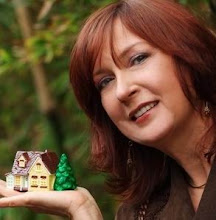The National Association of Realtor's website reports: To help advance an economically prosperous and environmentally sustainable future,
NAR is committed to supporting all commercially reasonable strategies with
voluntary, performance-based incentives to reduce greenhouse gases and use energy more efficiently. Market-based, cost effective solutions energize the nation’s entrepreneurial spirit and drive innovation in cutting emissions and growing domestic supplies of carbon-based and renewable forms of energy.
http://www.realtor.org/government_affairs/gapublic/american_clean_energy_security_act?lid=ronav0019The recent Climate Bill passed by the Congress original called for
mandatory energy audits for any property involved in a sales transaction. It does leave the decision up to the states, however, wanna guess what California will do? After all we are the land of "fruits and nuts"
The National Association of Realtors wants to assure it is a voluntary decision weather or not to have an energy audit as part of a sales transaction (like a termite inspection is now.) An energy audit would add $300-500 to the expenses of purchasing or selling a home (depending on who ends up having to pay for it.)
I say
if you can, get the audit, the few hundred dollars will save you thousands over your typical home ownership total time period. I do also agree that it should not be mandatory. I believe it will end up that way, as consumers will insist on it, like termite inspections.
A great thing about the bill is that there are a lot of "significant financial incentive,
matching grants and tools to make property
improvements and reduce their energy bill." For more information on this bill, go to:
http://www.opencongress.org/bill/111-h2454/showEven though
NAR does not want to make it mandatory, they voluntarily built their office building in Washington DC. It's the first privately-owned commercial building in the nation’s capitol to be
LEED Silver certified. And,
NAR's Smart Growth program provides grants and technical assistance for sustainable, environmentally-sound development initiatives in communities nationwide. Way to go
NAR!


